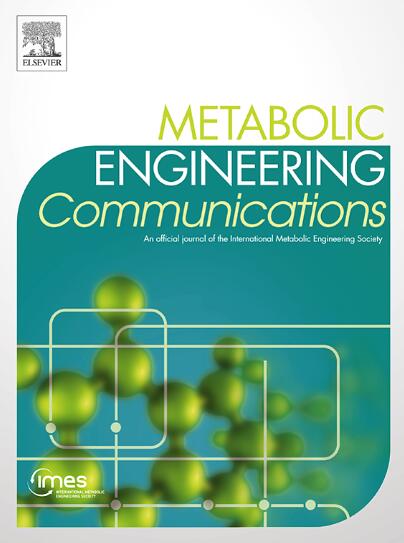Cutting-edge developments in plastic biodegradation and upcycling via engineering approaches
IF 4.1
Q2 BIOTECHNOLOGY & APPLIED MICROBIOLOGY
引用次数: 0
Abstract
The increasing use of plastics has resulted in the production of high quantities of plastic waste that pose a serious risk to the environment. The upcycling of plastics into value-added products offers a potential solution for resolving the plastics environmental crisis. Recently, various microorganisms and their enzymes have been identified for their ability to degrade plastics effectively. Furthermore, many investigations have revealed the application of plastic monomers as carbon sources for bio-upcycling to generate valuable materials such as biosurfactants, bioplastics, and biochemicals. With the advancement in the fields of synthetic biology and metabolic engineering, the construction of high-performance microbes and enzymes for plastic removal and bio-upcycling can be achieved. Plastic valorization can be optimized by improving uptake and conversion efficiency, engineering transporters and enzymes, metabolic pathway reconstruction, and also using a chemo-biological hybrid approach. This review focuses on engineering approaches for enhancing plastic removal and the methods of depolymerization and upcycling processes of various microplastics. Additionally, the major challenges and future perspectives for facilitating the development of a sustainable circular plastic economy are highlighted.
通过工程方法在塑料生物降解和升级回收方面的前沿发展
塑料使用量的增加导致大量塑料废物的产生,对环境构成严重威胁。将塑料升级为增值产品为解决塑料环境危机提供了一个潜在的解决方案。最近,各种微生物及其酶已被确定为具有有效降解塑料的能力。此外,许多研究已经揭示了塑料单体作为生物升级循环的碳源的应用,以产生有价值的材料,如生物表面活性剂、生物塑料和生物化学品。随着合成生物学和代谢工程领域的发展,构建高性能的塑料去除和生物升级利用微生物和酶是可能的。塑料增值可以通过提高吸收和转化效率、工程转运体和酶、代谢途径重建以及使用化学-生物杂交方法来优化。本文综述了增强塑料去除的工程方法以及各种微塑料的解聚和升级回收方法。此外,还强调了促进可持续循环塑料经济发展的主要挑战和未来前景。
本文章由计算机程序翻译,如有差异,请以英文原文为准。
求助全文
约1分钟内获得全文
求助全文
来源期刊

Metabolic Engineering Communications
Medicine-Endocrinology, Diabetes and Metabolism
CiteScore
13.30
自引率
1.90%
发文量
22
审稿时长
18 weeks
期刊介绍:
Metabolic Engineering Communications, a companion title to Metabolic Engineering (MBE), is devoted to publishing original research in the areas of metabolic engineering, synthetic biology, computational biology and systems biology for problems related to metabolism and the engineering of metabolism for the production of fuels, chemicals, and pharmaceuticals. The journal will carry articles on the design, construction, and analysis of biological systems ranging from pathway components to biological complexes and genomes (including genomic, analytical and bioinformatics methods) in suitable host cells to allow them to produce novel compounds of industrial and medical interest. Demonstrations of regulatory designs and synthetic circuits that alter the performance of biochemical pathways and cellular processes will also be presented. Metabolic Engineering Communications complements MBE by publishing articles that are either shorter than those published in the full journal, or which describe key elements of larger metabolic engineering efforts.
 求助内容:
求助内容: 应助结果提醒方式:
应助结果提醒方式:


